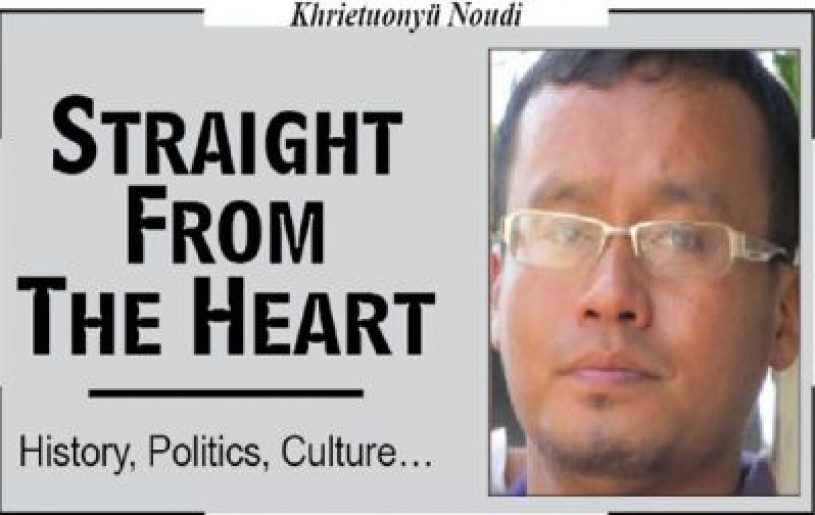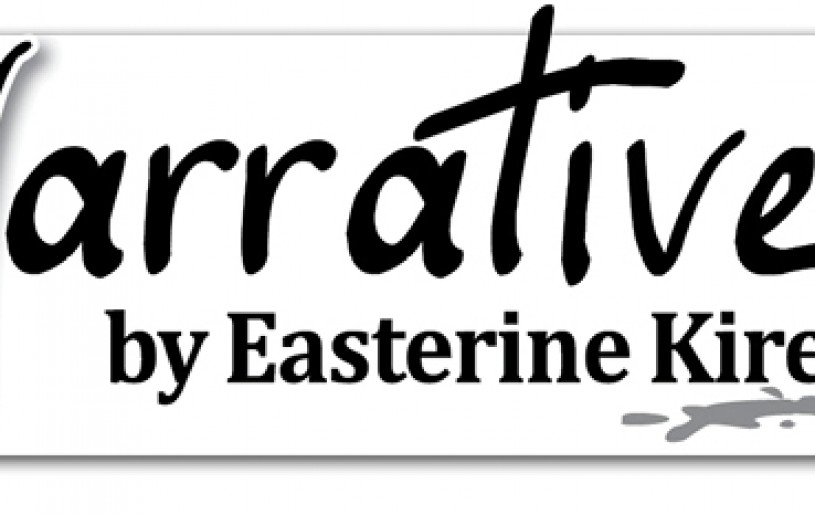
Pamyo Chamrui
At the very outset let me assert the plurality of my identity. I am Naga, yet, I belong to a particular clan, a village, and a ‘nation’. I enjoy the cultural privileges within my society even as one hailing from a minority community in the midst of larger communities and many powerful forces. Upholding a semblance of independence is a continuing struggle.
Here, I am not trying to assert the fatalisms which have steadily unfastened and fractured the bond that many Nagas had tilled with their lives. My intent is rather to remind oneself of the dangers that arise out of a homogenising tendency in the aspiration of nations, as history tells us so. Secondly, to acknowledge our plural identity in order to be aware of the ‘othering’ that often arises outof such plurality. Because to aspire and imagine a future together, I am of the view that it is necessary to be cognizant of our varied actualities which had shaped and still continue to mould our collective memories. Not for its own sake, but to soothe some of our tainted memories that such diversity had at times brought about—with the humility to ask for forgiveness and also have the courage and kindness to forgive, for a more purposeful and meaningful future of our people. Without such acts of reconciliation, how do we imagine a collective destiny, an inclusive Naga Homeland?
Acknowledging all our past and present actualities, unless we, as a people, are ready to rectify our past mistakes and nurture a familial bond amidst us, it is unlikely that any status of any form will bring about a united people. The prolonged systemic association entailed by a single administration may bring a semblance or to a certain extent, a notion of belongingness. But is that all that the Nagas have strived for over the years? Are our identities, relationships, and aspirations solely dependent on being entitled under a state-system? No doubt, to live under one roof would be a blessing and a fulfilment of the cherished vision of our people, despite the uphill task that it will be. But can we and should we not also aspire for a Naga nation beyond the rigid conceptions of a nation-state?
A Naga Nation still in the making
At the risk of sounding utopian and insensible, the Naga identity and the Naga nation that I yearn for, is still in the making. An identity I can aspire to, rather than content with the present. To be enlightened by the past, yet, not dragged down by it. To be a Naga who is more forgiving and has the magnanimity to share one’s privileges. To break bread with any Naga, regardless of human-made boundaries—either by the state or in our hearts. To be grounded in lived actualities and being aware of all the odds that are against us, still, have the sincere willingness and integrity to rejoice in Kuknalim for all. A Naga-Land where one moves beyond the rhetoric of being one family, and enact what we profess.
The nation that I want to aspire for will not be built by our leaders alone, but each one of us will have to strive for a future moulded from the grassroots level. What I am aspiring for, is not out of my imagination alone. One only has to interact with the many young Nagas who aim for such future, and some are already on this path. The silver lining is already on the horizon.
“Nagas Without Borders”
In a recent measles outbreak in Lahe Township, Myanmar, it was heartening to witness the deeds of many amongst us from the Indian side of the ‘border’ reaching out to the Nagas in Myanmar—with the much needed moral support and material resources. The food, clothing and medicinal supplies for the outreach were funded with the resources gathered from our midst—each to one’s own capacity and out of one’s volition—utilising our technological privileges, relative wealth and human resources.
There are also Christian missionaries among us who are reaching out to the Nagas in Myanmar with the gospel of Christ, despite the constant threat to their lives. I’ve also heard the warm sound of few young Nagas reviving and regaling with the rich songs of our ancestors—the deep repository of our narratives: of a village; a clan; of the life world that was. The collective memories that make us who we are and what we can be.
Furthermore, many Nagas are also studying and working in various areas of the Indian sub-continent, as well as in different parts of the world. Despite the struggles that one has to face in such milieu, it has to a certain extent provided a platform for many Nagas to interact and live out a small aspect of their lives together: a sharing of narratives and actualities which we need on a much larger scale and frequency, if we are to overcome the walls in our hearts. Few Nagas have also donned the entrepreneurial role and are now job makers rather than waiting for a job to come their way. Hopefully, many more will have the courage to set out on such arduous path. But for many more to take such a path, and for them to thrive, our society will have to learn to support them with our deeds.
I’ll like to believe that many of us are also living in our own capacity, the best that we can be, not just for one’s sake but also for our people. As it is only such heartfelt concern and ingenuity at the grassroots level which will truly nurture a meaningful Naga Homeland. Without such efforts, a total reliance on top-down bureaucratic setup, compounded by our limited resources, and under the onslaught of crony capitalism, it is very likely that our self-seeking isms will resurface, despite our best intentions. We risk being a nation for a few in power—not for the community—the Naga peoples.
Therefore, I am of the view that a concerted effort in our individual capacities as well as at the organisational level is the need at every hour. Lest we forget, we, the Nagas, still do retain strong traditional institutions which command respect and loyalty of our people, despite all its flaws. I am of the view that these institutions will have to evolve from their overtly political character in the present, into institutions that concerns itself with many other issues—be it culture, environment, education, human rights, and so on. Else, what will a nation where its natural resources are ravaged, and its people oblivious to their roots, aspire for?
I am a Christian and Jesus Christ is the foundation of my aspirations. And it is under His grace and might that we have made it thus far. So, it is only right that we discern our foundation, in the imagining of our future. As it is written in the Bible, “Unless the Lord builds the house, the builders labour in vain.” Kuknalim!
Pamyo Chamrui is a student of Jawaharlal Nehru University, New Delhi. He is an avid reader and loves photography.






